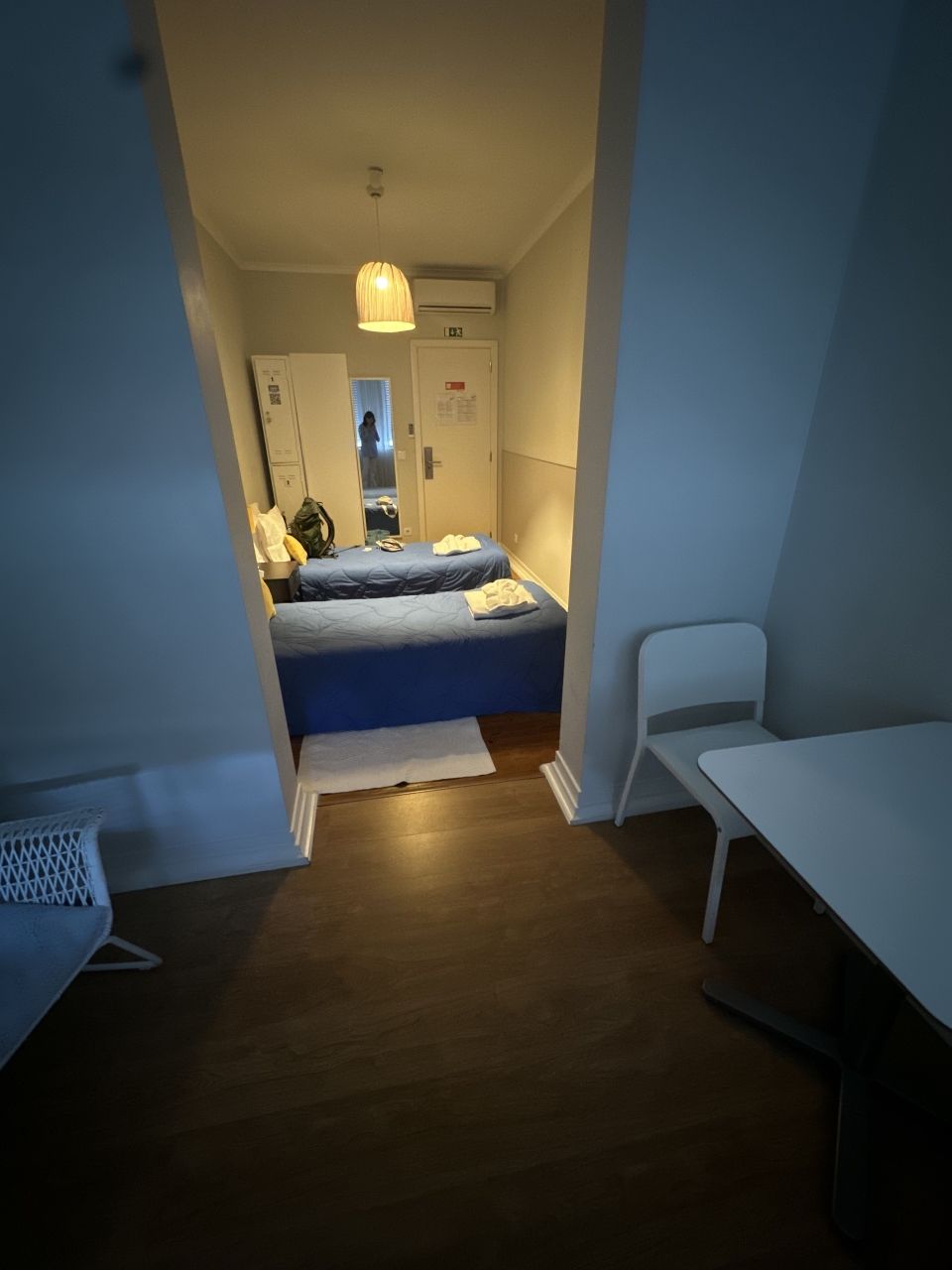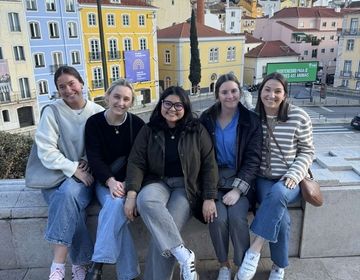7 Tips for Safe Solo Travel
By: Graycie Viscon
In my CIEE program, we did not have class on Fridays, which made weekend trips easier. While studying abroad in Madrid, I went on my first international solo trip to Lisbon, Portugal. My mom sent me articles on how to travel safely as a woman on her own, then proceeded to quiz me before I left. It was a truly amazing experience and here are a few things I learned.
1. Read hostel reviews
Hostels are a great way to travel and not break the bank. Websites like HostelWorld are good for comparing different hostels. Reviews are tagged by the customer's home country and gender. If you are a woman, it is a good idea to see what other women say about the hostel’s safety and atmosphere. Many have all-female dorms too. I loved my hostel (shout-out to Lisboa Central Hostel!) because it was cleaned multiple times a day, had a community kitchen, organized daily walking tours for free (a great way to meet other young travelers and get a lay of the land), had locks for personal belongings, and there was an overall homey atmosphere.

2. Give someone your itinerary
This is something I learned from backpacking back in the United States. Tell someone at home when you are leaving, where you are going, and when you expect to return. If you have not arrived by that time, they will begin the necessary steps to locate you. At CIEE, it is required to submit all overnight trips on your MyCIEE portal. Don’t skip it, it might save your life! You might also choose to tell someone in your dorm where you are going if you are going out at night, for added protection.
3. Use Uber
Uber allows you to see the name and reviews of your driver as well as share your location with contacts you have registered in the app. The price is also determined ahead of time, so you can make sure no one is charging you more because you are a tourist. Uber is safer than a taxi (except maybe London’s renowned Black Cabbies), which might not even be a real taxi at all.
4. Sign up for STEP
STEP, or the Smart Traveler Enrollment Program, is a service run through the US government which allows them to send emergency notifications to its registered citizens/nationals and also locate you in case of an emergency. It is a good idea to sign up for this free service for your study abroad anyway, but you can also add shorter trips too (like a solo weekend).
5. Post after you have left
I know it is hard not to immediately update your social media, especially when you are traveling to such cool places! But be cautious. It is always a better idea to wait to post until after you have left a location (a specific site/bar/restaurant/club in the city, or the city itself if you want to be even safer). Instagram has a feature where your story is added to a specific location’s story if you use that location tag– so you never know what creepy person is watching. Waiting is better anyway because it gives you more time to decide on the perfect picture and saves you from posting one you don’t look so good in ;)
6. Have a copy of your passport
Keep both physical and digital copies of your passport with you at all times. Also make sure someone back home has a copy. There is no need to bring your actual one with you to the museum or the discoteca. In fact, it is dangerous. Keep that locked up in your safe at the hostel.
7. Have a good time!
It is always smart to use your best judgment, but that does not mean you won’t have fun. A trip where you go a little out of your way to take the well-lit route home or pay a little more for a better-reviewed accommodations will be a better trip than one where you are kidnapped in the back of a car or your credit card is stolen.
Use my referral link for $200 off your study abroad experience! https://my.ciee.org/?rc=GraycieViscon
Related Posts
Medieval Cities in Portugal: A Journey Through Time
When we think of Portugal, the first things that come to mind are usually the beautiful beaches, the breathtaking landscapes of the Douro Valley, or the colorful streets of Lisbon... keep reading
Top 10 Portuguese Slang Words & Phrases You Must Know
Heading to Portugal and looking to blend in like a local? Learn these slang words in Portuguese to help you during your Lisbon study abroad experience. Whether you're dining at... keep reading
January in Lisbon!
Inviting, busy, historic, quiet, diverse. When asked about our initial impression of Lisbon, these were some words written on the board. As I sat there, I couldn’t help but ponder... keep reading




